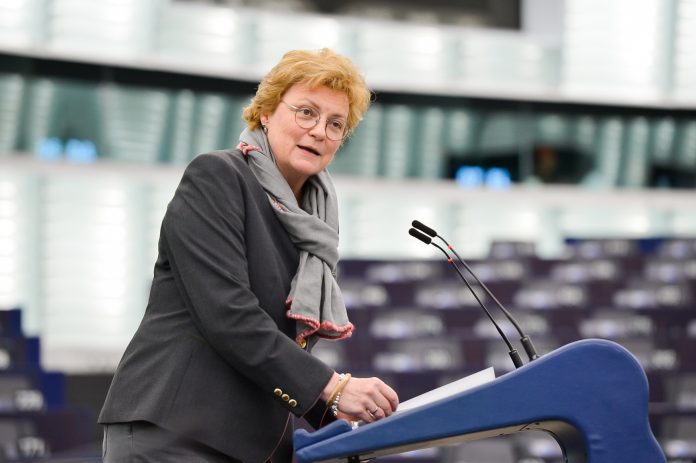For the revision of the EU’s Financial Regulation, MEPs want a stronger role in the budgetary scrutiny, respect for the rule of law and more transparency.
In a report adopted but the Committees on Budgets and on Budgetary Control on Thursday with 43 votes against 3, and 4 abstentions, MEPs set out their position for upcoming negotiations with member states on the proposed revision of the Financial Regulation. The rapporteurs say they “believe that the proposal falls far short of what is necessary and possible to achieve in order to ensure better democratic accountability for a modern EU budget, via increased parliamentary oversight, digitalisation, and mainstreaming of important EU policies”, also referring to the position set out in Parliament’s resolution of 24 November 2021.
The improvements proposed by the two committees concern the following topics:
Democratic accountability for a modern budget
Parliament is excluded from the decision-making process when it comes to so-called “external assigned revenue” and off-budget instruments, which also constitute an exception to the budgetary principle of universality. The European Recovery Instrument “Next Generation EU” has taken this practice to the next level. MEPs want an appropriate role of the Parliament in the budgetary scrutiny and discharge of such initiatives.
Also, as to borrowing and lending operations by the Commission, MEPs, who have long called for their full ‘budgetisation’, propose to improve the oversight of such operations.
EU values
The rapporteurs propose to include the respect of fundamental rights as a general principle, with appropriate sanctions where those rights are not respected.
Tracking and mainstreaming of EU policies
MEPs want to better monitor the impact of Union spending on gender equality, as well as to track spending on climate change mitigation and adaptation and the protection of biodiversity.
Decommitments
All EU funds not used as a result of full or partial non-implementation of projects should be automatically kept in the budget on the budget line of origin or made available to the MFF flexibility tools to allow the EU to react more forcefully in crises.
EU trust funds
MEPs have adopted amendments to guarantee an appropriate role of Parliament in the setting up, supervision and scrutiny of trust funds.
Tracking EU funds via digital tools
Parliament has repeatedly stressed the importance of knowing how EU funds are spent and who truly benefits from them in order to protect the financial interests of the EU and to detect fraud, corruption and conflicts of interest, and expressed concern that data for identifying economic operators and their beneficial owners is not easily accessible.
MEPs propose improvements to the relevant IT tool for data mining introduced by the Commission in the past, to make it compulsory and to extend it to EU funding managed directly by the European Commission, as well as other changes to the system to make it more transparent.
Co-rapporteur Monika Hohlmeier (EPP, DE), for the Committee on Budgetary Control: “We managed to vote a report which streamlines rules, reduces bureaucratic burden for member states and very much advances digital reporting and monitoring. It also creates more legal certainty for applicants and authorities. I am confidently looking forward to the talks with the Council and Commission to deliver this long overdue update of the Financial Regulation.”
Co-rapporteur Nils Ušakovs (S&D, LV), for the Committee on Budgets: “We are a union of values and this must be reflected in every piece of European legislation. Respect for fundamental human rights should be embedded in our single rule book for the management and implementation of the EU budget. In this respect, we also believe that social conditionality should become a horizontal principle as far as our budget spending is concerned: European public money must be a driving force in encouraging beneficiaries to respect, promote and protect workers’ rights and decent working conditions. Today MEPs send a clear message to the Council about its commitment to fight for democratic principles and high social standards for all.”
The Financial Regulation (FR) is the main point of reference for the principles and procedures governing the establishment, implementation and control of the EU budget. The current version of the FR applies from 2 August 2018. The FR is reviewed whenever it proves necessary to do so and in any case at the latest two years before the end of each multiannual financial framework.
The Commission proposed a revision of the FR in May 2022 to align it with the legal acts adopted in the context of the 2021-2027 Multiannual Financial Framework (MFF) package.
Parliament has adopted two resolutions in November 2021 ahead of the expected FR revision proposal, a general one and a separate legislative initiative on “digitalisation of the European reporting, monitoring and audit” in order to ensure better control of spending including the avoidance of misuse, corruption, fraud and of conflicts of interests.

